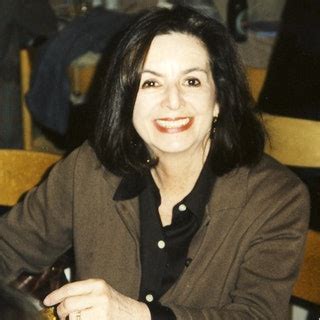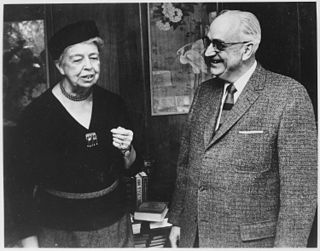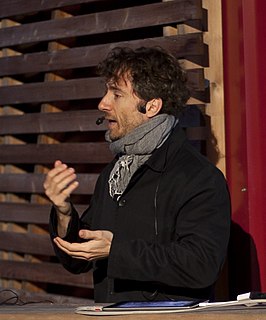A Quote by Eric Kandel
In the 1950s and early 1960s, psychoanalysis swept through the intellectual community, and it was the dominant mode of thinking about the mind. People felt that this was a completely new set of insights into human motivation, and that its therapeutic potential was significant.
Related Quotes
Biology is a way of approaching the truth about the mind. In biology most people don't tackle problems at the level of complexity that psychoanalysis does. But psychoanalysis has a degree of uncertainty about it. A psychoanalyst may have some deep insights, but cannot, at the moment, run experiments to establish whether it's really the truth.
Boost Mobile RockCorps is providing the chance and motivation to get our youth interested in volunteering. I usually hear about older people volunteering, but this movement is something new that is encouraging the youth to become involved. It's really a chance for them to come together through caring more about their community, which is so important for these kids to learn early on. I think it's crucial to instill a sense of pride in the community and this is a great way for our youth to do that.
I was really looking at computers as a way to understand the mind. But at M.I.T., my mind was blown by having a whole computer to yourself as long as you liked.I felt a surge of intellectual power through access to this computer, and I started thinking about what this could mean for kids and the way they learn. That's when we developed the computer programming language for kids, Logo.
I'm excited about the emergence of tokens, and while I'm skeptical of many of the early projects being launched, I do believe we are seeing the emergence of an entirely new asset class that will foster the growth of a new investment community, a new set of social networks, and most importantly, a new class of technologies.
These events are swirling around them. In the white community, people felt like they had no control over their neighborhoods, their destiny. In the black community, centuries of government and economic forces were pushing on them. I went in with a kind of arrogance, maybe, that came from living in a very intellectual family, and I left knowing that there was a lot about the way people lived that I didn't know about.
A. Douglas Stone, a physicist who has spent his life using quantum mechanics to explore striking new phenomena, has turned his considerable writing skills to thinking about Einstein and the quantum. What he finds and makes broadly understandable are the riches of Einstein's thinking not about relativity, not about his arguments with Bohr, but about Einstein's deep insights into the quantum world, insights that Stone shows speak to us now with all the vividness and depth they had a century ago. This is a fascinating book, lively, engaging, and strong in physical intuition.
I try to be a positive person, but I'm also always looking and wondering, 'Maybe this could be done differently.' As soon as your mind is in a critical mode, you're halfway through designing; as soon as you start thinking about whether something could be better, you're already halfway through a solution.




































